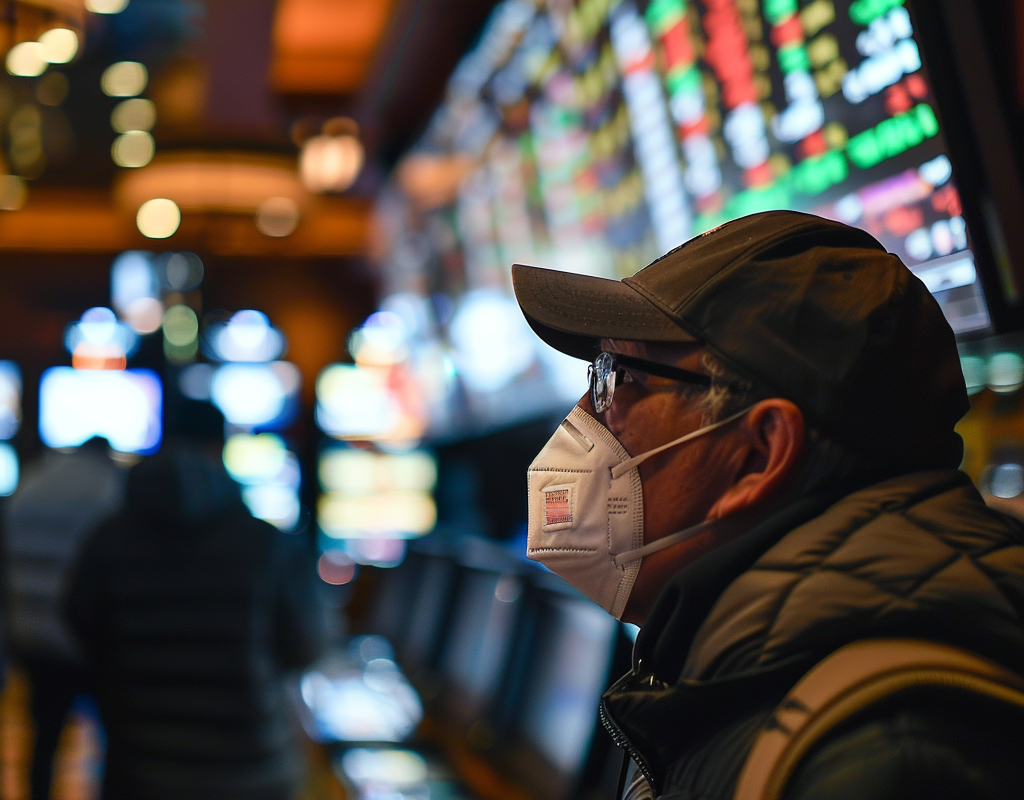The COVID-19 pandemic has had a significant impact on various aspects of our lives, and the world of sports betting is no exception. The introduction of quarantine measures, the cancellation of sporting events and changes in fan behavior have led to major changes in the betting industry.
Impact of the pandemic on sporting events
The COVID-19 pandemic has led to widespread cancellations and postponements of major sporting events around the world. The Olympic Games, World Cups and continental tournaments have been postponed or cancelled, causing serious consequences for bookmakers and their customers. Cancellation and rescheduling sporting events have disrupted the usual calendar and led to a decrease in the number of events available for betting.
Local and international tournaments also affected by the pandemic. Many national leagues and competitions were temporarily suspended or played without spectators, which affected the atmosphere and interest in the games. In response, sports organizations have begun to actively develop virtual and eSports events to compensate for the loss of revenue and retain audiences.
Changes in behavior of players and fans
The pandemic has caused significant changes in the behavior of players and fans. Among the main changes are:
- Declining interest in traditional sports: The lack of live matches and competitions has led to a decrease in interest in traditional sports betting.
- Growing popularity of e-sports and virtual betting: During the pandemic, many players turned their attention to e-sports and virtual competitions, which led to an increase in their popularity.
- The Impact of Social Distancing on Betting: The closure of land-based bookmakers and restrictions on social contacts have contributed to the shift of players to online platforms and mobile applications.
These changes have shown that the sports betting market can quickly adapt to new conditions and look for alternative ways to attract customers.
Financial implications for the betting industry
The COVID-19 pandemic has caused significant financial damage to the betting industry. Losses of bookmakers and revenue declines were felt due to the cancellation of sporting events and decreased player activity. However, the industry quickly adapted, changing business models and strategies.
Bookmaker companies began to actively invest in the development and promotion of online platforms, which made it possible to compensate for some of the losses. Impact on advertising and marketing budgets was also significant: companies reduced spending on traditional advertising campaigns and focused on digital marketing.
Development of new technologies and platforms
The pandemic has accelerated the shift to online platforms and mobile apps. Usage artificial intelligence and analytics has become an important tool for improving user experience and increasing forecast accuracy. Technologies make it possible to analyze a large amount of data and offer personalized recommendations for players.
The impact of technology on the future of sports betting obviously. The development of new platforms and the integration of innovative solutions help the industry remain relevant and attract new customers. The role of technology is expected to only grow in the future, creating new opportunities for players and operators.
Prospects and forecasts for the sports betting market after the pandemic
Post-pandemic, the sports betting industry is poised for recovery and growth. Long-term changes in player behavior, such as preference for online platforms and interest in eSports, will remain relevant. Bookmakers will continue to adapt by offering new products and services.
The impact of new trends such as the use of artificial intelligence and analytics will also be significant. These technologies will help improve the quality of services and attract new customers, creating competitive advantages for operators.
The COVID-19 pandemic has had a significant impact on the world of sports betting, leading to changes in bettor behavior, financial losses and the development of new technologies. Despite the challenges, the betting industry continues to adapt and evolve, finding new opportunities for growth and innovation.
The pandemic has led to a decrease in interest in traditional sports and an increase in the popularity of e-sports and virtual betting. Social distancing has also impacted rates, fueling a shift to online platforms and mobile apps.
Post-pandemic, the sports betting industry is expected to recover and grow, with long-term changes in bettor behavior and increased use of new technologies. The industry will continue to adapt, offering new solutions and improving the user experience.




